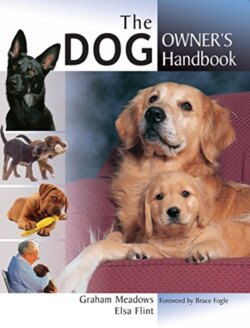Читать книгу The Dog Owner's Handbook - Graham Meadows - Страница 6
На сайте Литреса книга снята с продажи.
FOREWORD The essence of dog-ownership
ОглавлениеDogs are not changing – we are. Not so long ago a dog was considered ‘part of the furniture’. Today it is an active part of the family, a best buddy, a listening friend and a helping paw.
From the time canines first entered human homes, emotion played a role in our alliance with them. My observation during 30 years as a practising veterinarian is that emotional ties play an increasingly prominent role as our relationships with pet dogs are becoming progressively complex. And frequently we get all it wrong. Let me explain.
I accept that dogs and people share similar emotions. Elation, fear, tranquillity, anxiety, contentment, anger and even love are feelings that dogs share with us.
But your dog does not understand everything you say. It recognises a selection of words, and can determine your mood from the inflection in your voice. Dogs can read your body language, but they are unable to understand language as we do. Since we treat our dogs like members of the family, we tend to think of them as human and treat them accordingly. But we often expect too much of them.
We should never expect them to do more than their evolutionary status as highly sociable pack animals permits.
Emotion also plays a significant role in a relatively new area of veterinary care: geriatrics. This, together with medical genetics, is the burgeoning growth area in veterinary medicine. Pharmaceutical companies have discovered a vigorous demand for medicines that control age-related behaviour disorders such as disorientation, joint pain and incontinence. Food manufacturers formulate diets that ease the strain on the kidneys or hearts of the elderly. Due to our increased emotional investment in them, we want our dogs to live as long as possible, and advances in geriatric medicine mean that vets can now prolong the lives of pets.
Understanding where dogs have come from, their natural behaviour and our relationship with them all form the basis for what comes next: living with us. Whatever the relationship, our dogs depend on us for good nutrition, proper training, disease prevention and physical and emotional care. Read and learn. I hope you get as much pleasure from your canine companion as my family and I have had from all of ours.
Cordially,
Bruce Fogle
